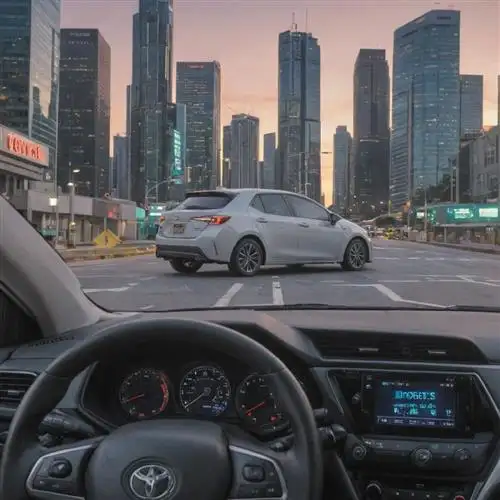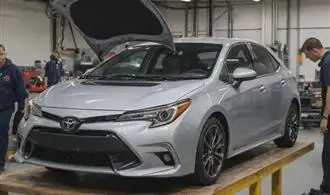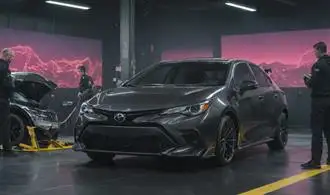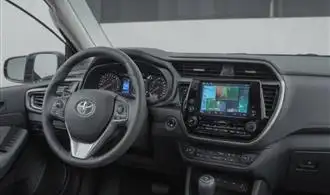
Reliability and Durability
At the heart of the Toyota Corolla's enduring appeal lies its unparalleled reliability and longevity. This iconic compact car has earned a reputation as one of the most dependable and durable vehicles on the road, a reputation that has been reinforced by its consistently high rankings in industry-leading reliability surveys.
The Corolla's reputation for reliability is built upon its robust engineering and meticulous attention to detail. Toyota's commitment to quality control ensures that every Corolla that rolls off the assembly line meets the highest standards of craftsmanship and performance. From the robust powertrain to the sturdy suspension system, every component is designed and manufactured to withstand the rigors of daily driving, year after year.
One of the key factors that contribute to the Corolla's reliability is its simple, yet effective, design. Unlike some of its more complex competitors, the Corolla eschews unnecessary frills and gimmicks in favor of a straightforward, no-nonsense approach to automotive engineering. This focus on simplicity and functionality translates into fewer potential points of failure, resulting in a vehicle that is less prone to costly repairs and breakdowns.
The Corolla's durability is equally impressive, with many models routinely clocking up well over 200,000 miles with proper maintenance. This remarkable longevity is a testament to the vehicle's robust construction and the quality of the materials used in its manufacture. From the sturdy body panels to the resilient interior components, the Corolla is built to withstand the rigors of daily use, year after year.
Furthermore, the Corolla's reliability and durability are supported by Toyota's extensive network of certified service centers and a comprehensive warranty program. Should any issues arise, owners can rest assured that their vehicle will be expertly diagnosed and repaired by trained technicians using genuine Toyota parts. This level of support and after-sales service is a key factor that sets the Corolla apart from its competitors.
In comparison, the Volkswagen Jetta, while a capable and well-designed vehicle, does not quite match the Corolla's reputation for reliability and longevity. The Jetta has been known to experience more frequent maintenance requirements and, in some cases, more significant mechanical issues, especially as the vehicle ages. This can result in higher ownership costs and a more frustrating ownership experience for some drivers.
Fuel Efficiency and Cost of Ownership
When it comes to the Toyota Corolla and the Volkswagen Jetta, the battle for supremacy often centers around fuel efficiency and cost of ownership. The Corolla, with its reputation for reliability and efficiency, has long been a favorite among drivers seeking a practical and economical daily commuter.
The Toyota Corolla boasts an impressive fuel economy, with the latest models achieving up to 31 miles per gallon in the city and 40 miles per gallon on the highway. This efficiency can be attributed to the Corolla's advanced engine technology, aerodynamic design, and lightweight construction. In contrast, the Volkswagen Jetta, while a capable and well-built vehicle, often falls short in terms of fuel efficiency, with an average of around 29 miles per gallon in the city and 36 miles per gallon on the highway.
The cost of ownership is another crucial factor to consider. The Corolla's reliability and longevity are well-documented, with many owners reporting impressive mileage and low maintenance costs over the lifetime of the vehicle. Additionally, the Corolla's resale value tends to be higher than the Jetta, making it a more financially prudent choice in the long run.
Maintenance and repair costs for the Corolla are also generally lower than the Jetta. Toyota's reputation for quality engineering and a vast network of authorized service centers contribute to the Corolla's cost-effective ownership experience. Owners can expect fewer unexpected breakdowns and a more predictable maintenance schedule, ultimately leading to a lower total cost of ownership.
Furthermore, the Corolla's fuel efficiency translates to reduced fuel expenses over the vehicle's lifespan. This can be particularly beneficial for drivers who cover a lot of mileage or commute long distances regularly. The Corolla's ability to deliver consistent and reliable fuel efficiency can lead to substantial savings, especially in the face of fluctuating gasoline prices.
Passenger and Cargo Space
When it comes to passenger and cargo space, the Toyota Corolla outshines the Volkswagen Jetta in several key areas. The Corolla boasts a spacious interior with ample room for both passengers and cargo, making it a more practical choice for families or those who require versatility in their daily driving.
The Corolla's rear seat offers generous legroom and headroom, providing a comfortable experience for passengers, even on longer journeys. In contrast, the Jetta's rear seat can feel a bit more cramped, especially for taller individuals. This difference in space becomes particularly noticeable when transporting additional passengers or accommodating child seats.
Moving to the cargo area, the Corolla's trunk offers a substantial 13.1 cubic feet of storage space, which is more than enough for everyday needs such as groceries, luggage, or sports equipment. The Jetta, on the other hand, provides a slightly smaller 14.1 cubic feet of cargo space, which may not be as accommodating for those with larger or bulkier items to transport.
Furthermore, the Corolla's rear seats can be folded down in a 60/40 split configuration, allowing for even more flexibility in cargo management. This feature enables owners to easily adapt the vehicle's interior to their specific needs, whether it's hauling larger items or maintaining a balance between passenger and cargo space.
In contrast, the Jetta's rear seats only offer a single-piece folding configuration, which can limit the versatility in cargo loading and storage. This can be a drawback for those who need to transport a mix of passengers and larger items simultaneously.
Safety and Driver Assistance Features
When it comes to safety and driver assistance features, the Toyota Corolla outshines the Volkswagen Jetta in several key areas. The Corolla's comprehensive suite of advanced safety technologies provides drivers with a heightened sense of security and confidence on the road.
One of the standout features of the Corolla is the Toyota Safety Sense 2.0 system, which comes standard across the entire model lineup. This advanced suite includes a pre-collision system with pedestrian detection, lane departure alert with steering assist, automatic high beams, and dynamic radar cruise control. These features work together to actively monitor the driving environment, detect potential hazards, and intervene to help prevent or mitigate accidents.
The pre-collision system with pedestrian detection is particularly impressive, utilizing forward-facing cameras and radar to identify pedestrians, cyclists, and other vehicles in the Corolla's path. If a collision is deemed imminent, the system will alert the driver and, if necessary, apply automatic braking to help reduce the severity of the impact or avoid the collision altogether.
Another crucial safety feature is the lane departure alert with steering assist, which uses lane-tracing technology to detect when the Corolla begins to drift out of its lane. If the system senses an unintentional lane departure, it will first alert the driver and then apply gentle steering inputs to help guide the vehicle back into the proper lane.
The Toyota Corolla also boasts an advanced blind spot monitoring system with rear cross-traffic alert. This feature uses radar sensors to detect vehicles in the Corolla's blind spots and provides visual and audible warnings to the driver, helping to prevent potentially dangerous lane changes or reversing maneuvers.
In contrast, the Volkswagen Jetta's safety and driver assistance features, while capable, do not offer the same level of comprehensive coverage as the Corolla. While the Jetta does come standard with forward collision warning and autonomous emergency braking, it lacks the depth and breadth of the Toyota Safety Sense 2.0 system.
Additionally, the Jetta's available driver assistance features, such as blind spot monitoring and lane-keeping assist, are not included as standard equipment across the entire model lineup, requiring consumers to upgrade to higher trim levels or add-on packages to access these important safety technologies.
Resale Value and Long-Term Ownership
One of the key factors that sets the Toyota Corolla apart from its competitors, such as the Volkswagen Jetta, is its exceptional resale value and long-term ownership prospects. The Corolla's reputation for reliability, durability, and cost-effective maintenance has made it a favorite among used car buyers, consistently retaining a higher percentage of its original value compared to many other compact cars.
According to industry data, the Toyota Corolla typically holds its value better than the Volkswagen Jetta over the course of its lifetime. This is due to several factors:
- Reputation for Reliability: The Corolla is renowned for its dependable performance and low maintenance requirements, which translates to fewer unexpected repair costs and a longer usable lifespan for the vehicle.
- Proven Track Record: With decades of production and millions of satisfied owners, the Corolla has established a well-earned reputation for being a trustworthy, long-lasting vehicle that can withstand the test of time.
- Robust Build Quality: The Corolla's construction, using high-quality materials and engineering, contributes to its ability to maintain its structural integrity and functionality over the years, preserving its value.
- Widespread Availability of Parts: The Corolla's popularity and widespread adoption mean that replacement parts and maintenance services are readily available, often at competitive prices, making it easier and more cost-effective to maintain the vehicle long-term.
In contrast, the Volkswagen Jetta, while a capable compact car, may not enjoy the same level of long-term value retention as the Toyota Corolla. Factors such as less consistent reliability, higher maintenance costs, and a smaller pool of available parts and services can contribute to a lower resale value for the Jetta over time.
















